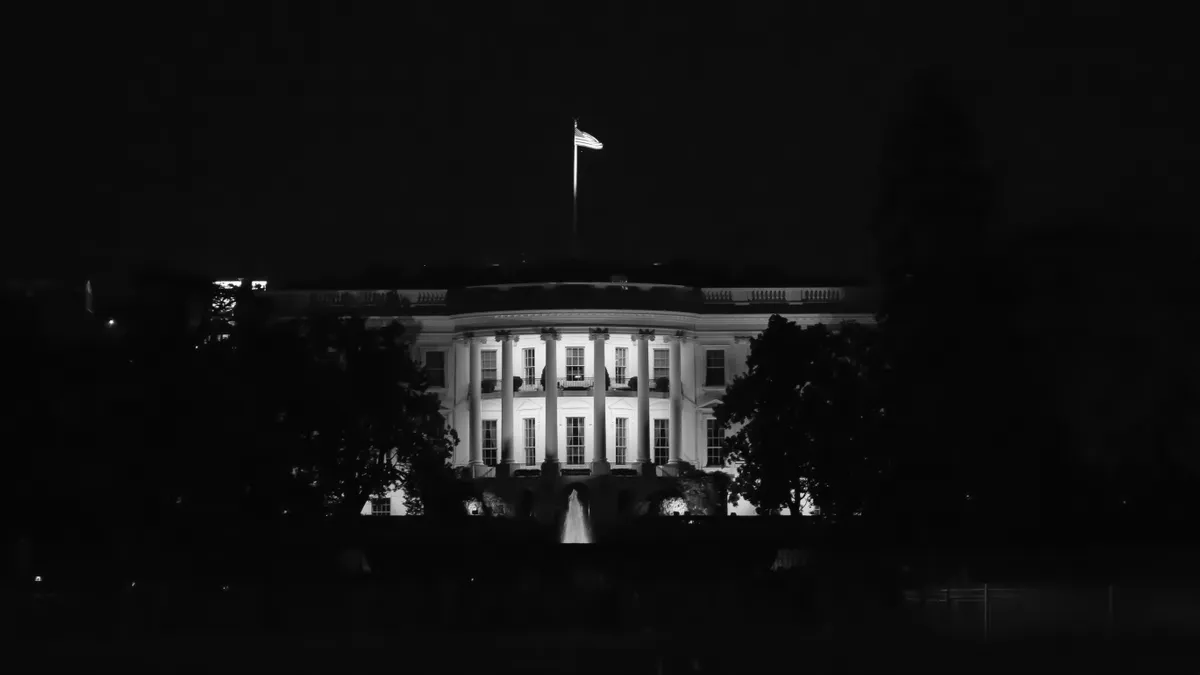Dive Brief:
- Cybersecurity is becoming a larger part of the U.S. national security strategy, according to documents released by the White House this week. The strategy discussed defense in terms of both space and cyberspace, highlighting that the U.S. economy's "vitality" could be at stake if malicious actors were to exploit vulnerabilities in "the land, air, maritime, space, and cyberspace domains."
- Whether it's cybercrime or nation state threats, cyberattacks provide the "ability to wage campaigns against American political, economic, and security interests without ever physically crossing" U.S. borders, according to the strategy. To boost network and online defense, the White House emphasized accountability and the use of advanced tools to disrupt malicious activity, planning to interfere with online marketplaces or cryptocurrencies.
- In an effort to better defend against cyberthreats, the White House is promoting a full audit of its potential risk. To create a more robust cyber infrastructure, the government is looking to identify and prioritize risk, create more defensible government networks, disrupt malicious cyber actors, boost public-private sector information sharing and create a more layered cyber defense strategy.
Dive Insight:
The treatment of technology in the federal government has changed drastically over the years. With IT constantly referred to as a cost center, it was a battle for some federal agencies to fund technology modernization efforts. Now, the White House is calling for more modern government tech, drawing on U.S.-based innovation and leaning toward more cloud-friendly implementations.
The changing attitude toward technology does not just stem from calls for efficiency. Instead, the U.S. government is prioritizing modernization as a way to improve its cybersecurity. Congress is on board and last week passed an act that creates a modernization fund as part of the National Defense Authorization Act.
With systems constantly crowded with attacks, the U.S. has quickly become more aware of its security portfolio and the nation state actors it has to defend against daily. Following the large-scale data breach of the Office of Personnel Management, the U.S. government was tested not only on its response, but also on the preventative measures that were — or potentially were not — in place.
Many experts fear the rise of a full scale cyberwar, something that would place American businesses and consumers in the cross hairs of nation state online activity.
But people and companies around the world have already experienced harsh activity from nation state actors, the U.S. government says. In an op-ed Monday, Thomas Bossert, assistant to the president for homeland security and counterterrorism, said the U.S. is now publicly blaming North Korea for the WannaCry attack earlier this year.
Bossert called for increased accountability for malicious actors and more cooperation between governments and businesses to help make cyberattacks more costly for hackers.














